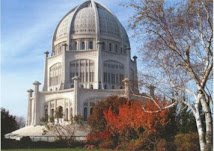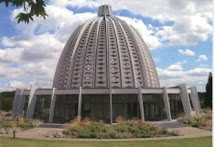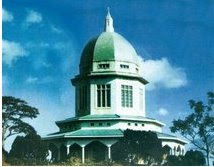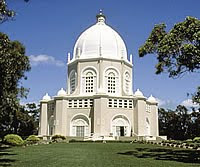Holy day marks 116th anniversary of the passing of Baha’u’llah
 Around the globe, tens of thousands more turned their faces in the direction of the same shrine – for Baha’is, the holiest spot on earth – in remembrance of the night in 28 May, 1892 that Baha’u’llah passed away at His home near Acre in the Holy Land.
Around the globe, tens of thousands more turned their faces in the direction of the same shrine – for Baha’is, the holiest spot on earth – in remembrance of the night in 28 May, 1892 that Baha’u’llah passed away at His home near Acre in the Holy Land.His remains were entombed on the same property, now a site of pilgrimage for members of the Baha’i Faith the world over.
Baha’u’llah was born in Tehran, Iran, but He and a large group of His followers were banished from their native land in 1853 and forced to go first to Baghdad, then on to what was the Ottoman Empire and the remote prison city of Acre.
Baha’is believe that Baha’u’llah is the Messenger of God for this age, the most recent in a line of divine educators that includes Buddha, Jesus, Krishna, Mohammed, Moses, and Zoroaster, among others.
The anniversary of the Ascension of Baha’u’llah is one of nine holy days on which Baha’is suspend work.
Prayer

The praise which hath dawned from Thy most august Self, and the glory which hath shone forth from Thy most effulgent Beauty, rest upon Thee, O Thou Who art the Manifestation of Grandeur, and the King of Eternity, and the Lord of all who are in heaven and on earth! I testify that through Thee the sovereignty of God and His dominion, and the majesty of God and His grandeur, were revealed, and the Daystars of ancient splendor have shed their radiance in the heaven of Thine irrevocable decree, and the Beauty of the Unseen hath shone forth above the horizon of creation. I testify, moreover, that with but a movement of Thy Pen Thine injunction “Be Thou” hath been enforced, and God’s hidden Secret hath been divulged, and all created things 231 have been called into being, and all the Revelations have been sent down.
Bahá’u’lláh










